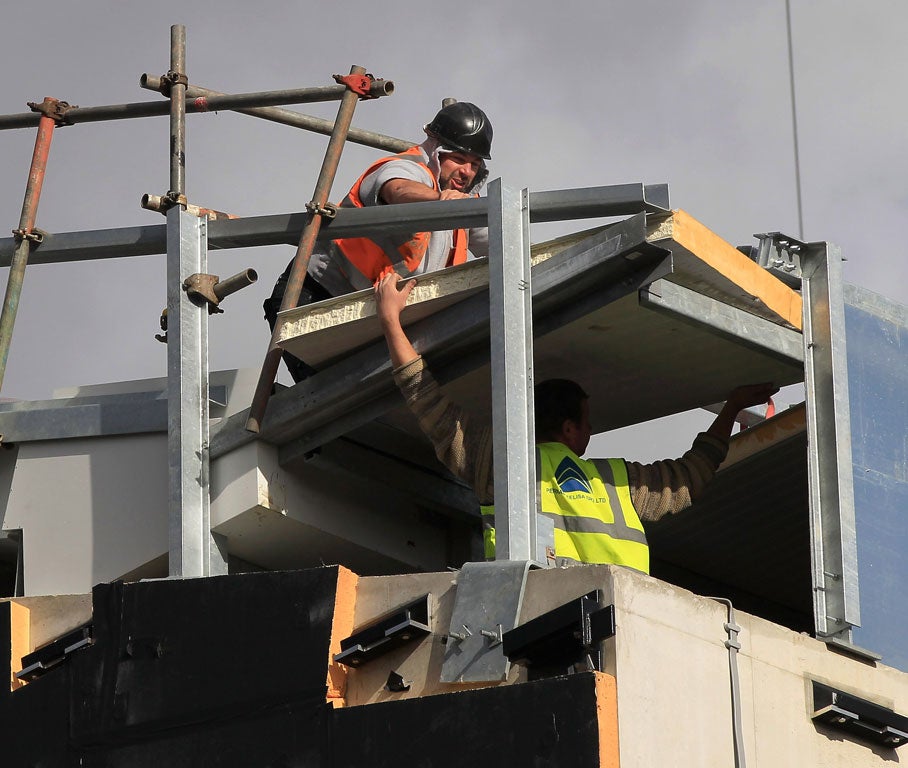Anger over Government plans to cut thousands of health and safety inspections

Unions today reacted with fury to Government plans to streamline employment regulations, warning that exempting businesses from health and safety inspections will lead to more deaths and injuries in the workplace.
Business welcomed Vince Cable's move to scrap or overhaul more than 3,000 regulations, as well as new legislation to protect firms from "compensation culture" claims.
But TUC general secretary Brendan Barber said that restricting health and safety inspections to firms in higher-risk areas would fuel an "occupational health epidemic" in the UK.
The row came as Mr Cable told MPs that the Government's industrial strategy, which he will unveil in a major speech in London tomorrow, will include targeted Government support for key sectors like advanced manufacturing, higher education, the digital industry and the energy supply chain.
While the strategy of "picking winners" had failed in the 1970s, the Liberal Democrat Business Secretary said there had been "a swing of the pendulum too far in the opposite direction" in subsequent decades and the UK should learn from countries like South Korea, Germany and Finland where governments work in partnership with key industries.
Labour shadow business secretary Chuka Umunna welcomed the move, but questioned whether Mr Cable had "unequivocal backing" from David Cameron, Chancellor George Osborne or even his own team at the Department for Business, where he was last week joined by free-market Tory ministers Michael Fallon and Matthew Hancock.
Responding to an urgent question in the House of Commons, Mr Cable insisted that he had the "absolutely full support" of the Prime Minister, Chancellor and business colleagues.
Meanwhile, Mr Fallon confirmed that the department will announce measures later this week to deregulate employment rules to encourage negotiated settlements of disputes instead of tribunals.
The business minister insisted that the measures would not allow bosses to "fire at will" but would "deal with the burdensome nature of hiring and firing".
Earlier, Mr Cable unveiled what officials described as a "radical" plan to curb red tape by tackling the regulations which have most impact on businesses.
From next April, the Government intends to introduce binding new rules on both the Health & Safety Executive and local authorities that will exempt hundreds of thousands of businesses - such as shops, offices, pubs and clubs - from regular inspections.
Firms will only face health and safety inspections if they are operating in higher-risk areas such as construction, or if they have an incident or track record of poor performance.
The Government also said it will introduce legislation next month to ensure that businesses will only be held liable for civil damages in health and safety cases if they can be shown to have acted negligently.
Mr Cable said: "In these tough times, businesses need to focus all their energies on creating jobs and growth, not being tied up in unnecessary red tape.
"I've listened to those concerns and we're determined to put common sense back into areas like health and safety, which will reduce costs and fear of burdensome inspections."
Alexander Ehmann, head of regulatory policy at the Institute of Directors, described today's announcements as "good news if they are the beginning, not the end, of the deregulation story".
"Excessive regulation costs time and money, both of which businesses would rather spend on developing new products, hiring staff and building up British business both here and abroad," said Mr Ehmann.
But Mr Barber said that 1.9 million people are living with work-related illnesses, which result in 20,000 deaths every year.
"This epidemic will only be stopped by ensuring that employers obey the law, and when every employer knows their workplace can be visited at any time," said the TUC chief.
"Health and safety regulation is not a burden on business, it is a basic protection for workers. Cutting back on regulation and inspections will lead to more injuries and deaths as result of poor safety at work."
And Mike Macdonald, of the union Prospect, which represents more than 1,600 HSE staff, said that health and safety rules made up only a tiny percentage of the 3,000 regulations targeted by ministers.
"This smacks of jumping on the health and safety-bashing bandwagon again," he said.
Communication Workers Union general secretary Billy Hayes said: "The Government will have blood on its hands if these dangerous cuts go through. Health and safety is not an unnecessary piece of bureaucracy; it helps to save lives and improve the health and wellbeing of workers in all workplaces."
The cross-party Associate Parliamentary Manufacturing Group called on Mr Cameron to appoint a minister for manufacturing and commit the Government to an annual statement to Parliament on its industrial policy.
The group's co-chair, Conservative MP Chris White, said: "Other economies have benefited enormously from government leadership on industrial growth - so can the UK. We need a clear vision of what we want the UK manufacturing sector to look like in five, 10, 25 years, and we need a cross-government plan for getting there."
PA
Join our commenting forum
Join thought-provoking conversations, follow other Independent readers and see their replies
Comments
Bookmark popover
Removed from bookmarks